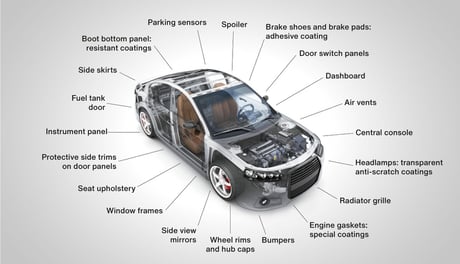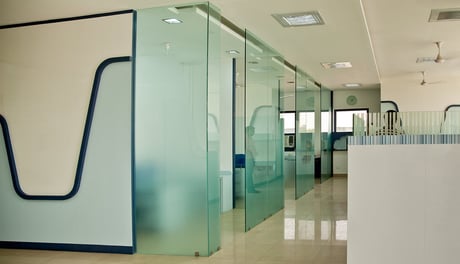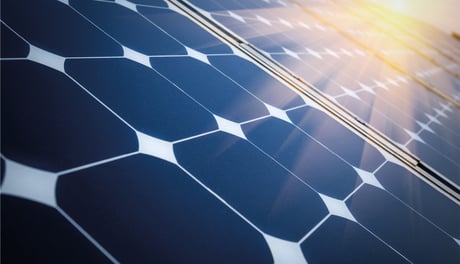What is meant by industrial glass finishing?
Industrial glass finishing refers to a set of processes and treatments applied to raw glass or glass sheets to enhance their aesthetic, functional, or technical properties. The goal of industrial glass finishing is to improve the appearance, strength, and performance of the glass, making it suitable for a variety of applications.
The building industry is the primary sector requiring glass finishing solutions. These may be for decorative purposes where glass panels are used indoors, such as mirror backs, wall panels, tables, doors, partitions, splashbacks and shower stalls; or outdoors such as architectural facades, architectural elements, cantilever roofs, solar panels and a new generation of windows with special thermochromic coatings that can switch between transmitting and blocking solar heat. Other sectors such as the automotive industry or the aerospace industry also require glass finishing solutions.
technologies
Which technologies are used for glass finishes?
Whatever the aim, we have developed equipment dedicated to glass coating which focuses on high-quality application uniformity, transfer efficiency and ease of use. A number of these contain special patented solutions.
Working with leading global glass manufacturers, we have acquired the experience and knowledge to implement the most appropriate equipment or complete finishing lines to achieve a specific goal. Key stages of the glass finishing process include:
Roller coating is an excellent means of achieving a uniform layer of paint and ensures superior transfer efficiency.
Spray coating caters for decorative needs, especially when the resulting effect features more than one colour.
Drying systems for which there are different types (low, medium and high temp.) according to the lacquer to be dried.
Cooling systems which use ambient or chilled air to dry glass panels, thereby enabling their handling.
IoT & control software solutions manage all stages of the process to enhance productivity and quality of the final product.
In which industries are glass finishing solutions used?
Sectors
Technologies
Application fields
Here is a selection of glass finished specific products:
APPLICATIONS

Car window

Doors and shower stall

Furniture components

Architectural structures

Mirrors

Interior coverings
performances
Not just aesthetics: high-performance hydrophobic glass surfaces
Shower doors, car windshields, glass roofs for bus shelters are all typical applications where a transparent, spotless glass surface is not only an attractive one, but also a functional one, requiring hydrophobic properties. Other applications which benefit from water-repellent surfaces include solar panels to avoid accumulation of particles which reduce solar-cell efficiency and ceramic tiles to avoid limescale build-up.
Automation
Glass finishes: applying water-repellent coatings to glass
Until recently, special hydrophobic products were applied to glass surfaces manually. This remains a possibility, but will never be as economically viable as automatic spray coating procedures, which also ensure consistent quality and correct parameter settings to achieve optimum results.
Tested extensively on our PRIMA spray coater, we have established the optimal parameters to apply hydrophobic products in a factory-based scenario. One litre of water-repellent coating will cover approx. 40 square metres of glass and can be applied at low pressures.
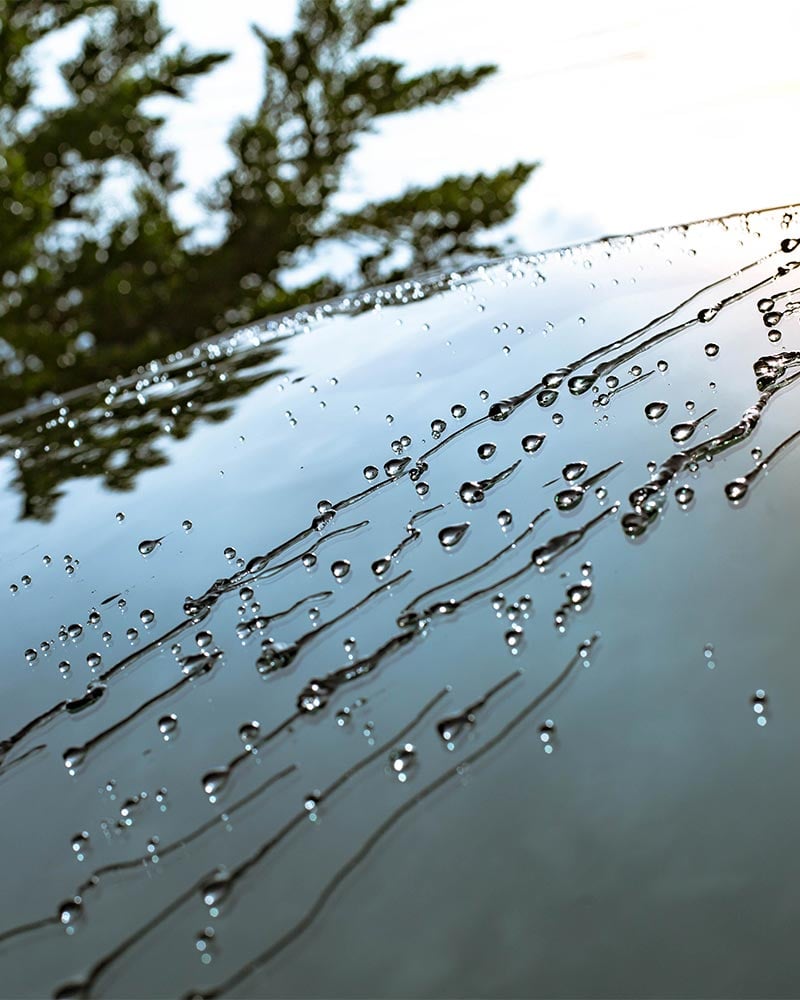
We have developed several solutions that allow for glass finishing and decoration
Machines
Case studies
Case study
WHITEPAPER
How to optimise roller coating technologies for a growing variety of products and substrates

Learn More
MAGAZINE
Experience spanning over 60 years.
Tell us where you want to go and our finishing experts will help you get there.
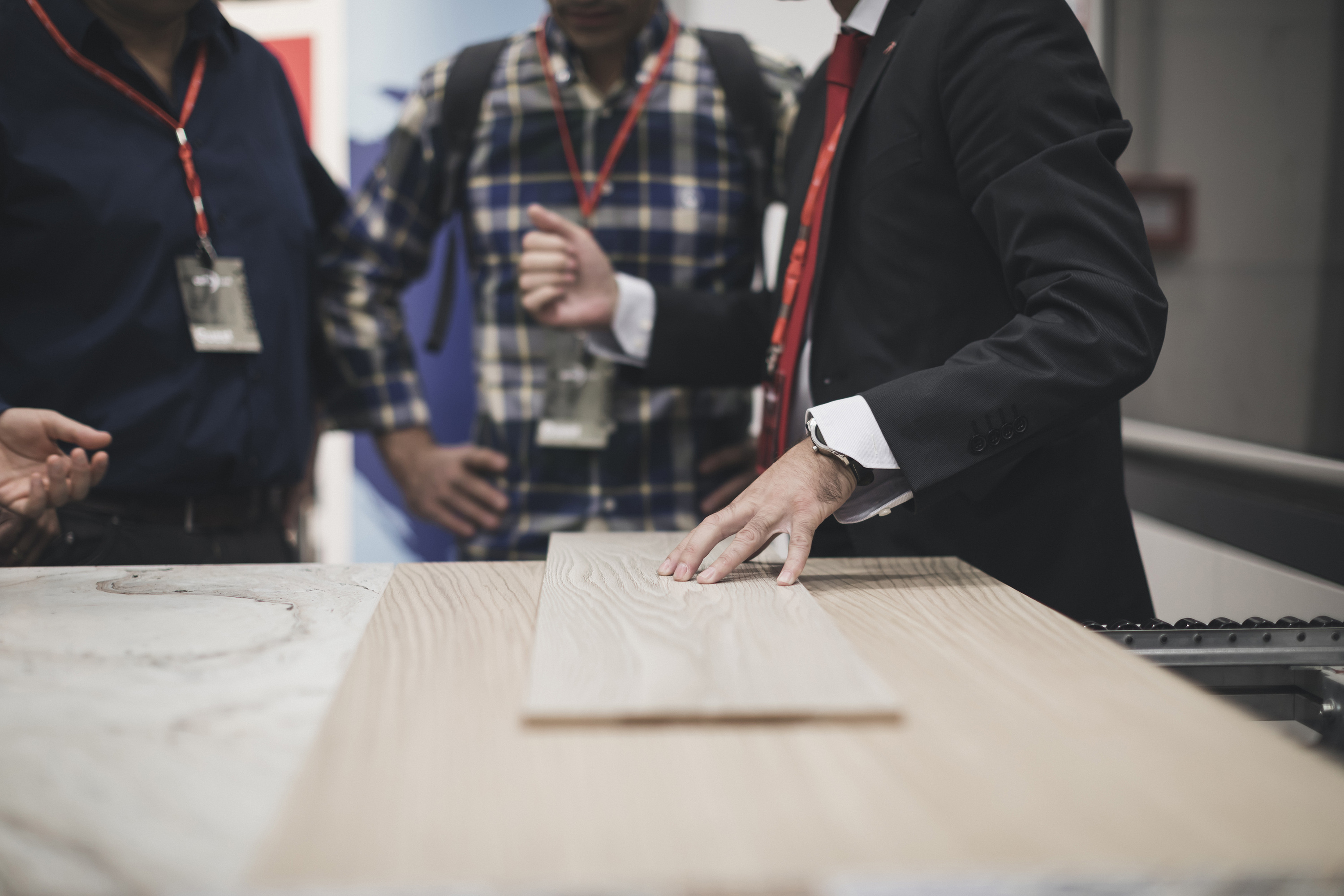
Connect
Frequently Asked Questions
Frequently Asked Questions
High flexibility in terms of output rate and choice of cycles/processes according to the line make-up.
Zero solvent emissions thanks to 95% use of products with high dry residue (UV) content.
Possibility of using the roller technique for any application on all flat surfaces.
- That the coating must match the substrate material to ensure proper adhesion.
- That the piece being coated must be able to pass through the machines/systems.














